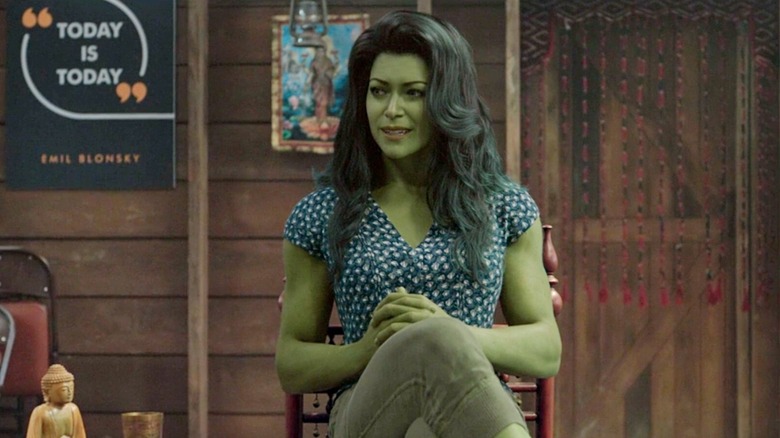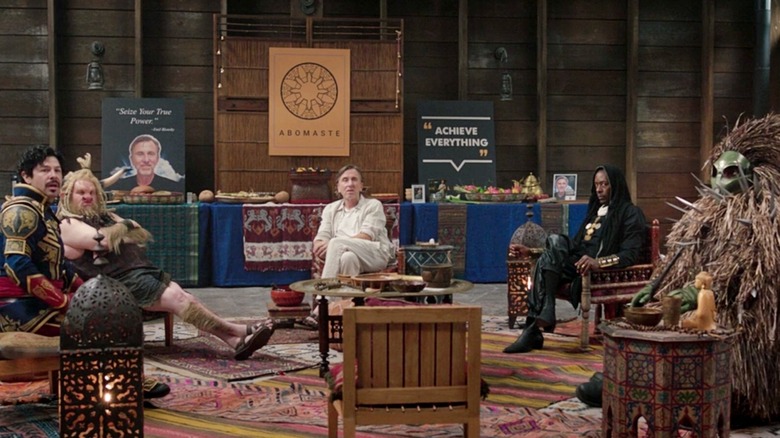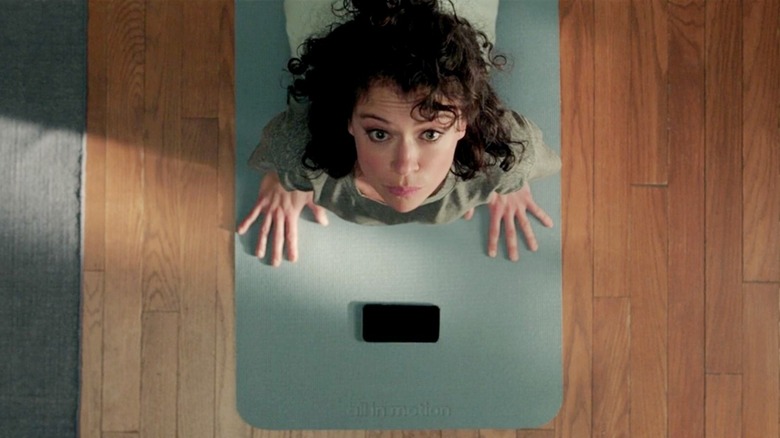She-Hulk Shows How MCU Superheroes Could Really Benefit From Therapy
It's a cliché by now. No matter how popular, wide-ranging, and diverse superhero media has become in the last decade or two, one consistent through-line remains the same: Not one of them ever attempts to fix their own problems by just ... going to therapy.
Bruce Wayne is cursed to forever spend his life mourning the murder of his parents in the unhealthiest way possible. Tony Stark builds himself an endless parade of iron suits to distract from his lingering PTSD. And lest we forget, Wanda Maximoff actually enslaved an entire town of innocents and became a multiversal supervillain instead of coming to terms with her android boyfriend's death and the loss of her (nonexistent?) children. Incredibly enough, the closest any recent "superhero" has come to seeking help to improve themselves (well, maybe second closest) is probably The Deep (Chace Crawford) in the satire series "The Boys," and even then his method of self-help mostly involved getting brainwashed into a Scientology-adjacent cult.
Superheroes are damaged, folks, and their go-to method of choice to deal with that typically creates more damage.
Until the latest episode of "She-Hulk: Attorney At Law," at least, which had the genuinely novel idea of putting Jennifer Walters (Tatiana Maslany) at the center of a group therapy session — and not a fistfight — to deal with her (refreshingly everyday!) life problems. No, she doesn't come with the baggage of man out of time Steve Rogers, her cousin Bruce Banner's decades of loneliness and battle scars, or even the plethora of rather severe psychological issues plaguing the other members of Emil Blonsky's (Tim Roth) self-improvement retreat. By comparison, her dating and self-image issues seem downright mundane.
But by confronting Jen's anxieties and insecurities head-on, "She-Hulk" gave her the self-actualization so many other MCU heroes never achieve.
More talking, less smashing
Almost 15 years into the MCU's unprecedented run of success, we've mostly only ever been subjected to one main mode of superheroing — smashes, punches, and POW!'s. That obviously comes with the territory, to say the absolute least, but haven't we reached the point where we can look around and gently suggest that there has to be a better way ... or, at the very least, a more interesting one?
Swept up in a sweet romance with last week's wedding guest Josh (Trevor Salter), Jen's main conflict in yet another low-stakes episode mostly amounts to being ghosted for seemingly no reason and the ways that brings out all her unresolved issues with her "normal" Jen self vs. the attention-grabbing She-Hulk who represents everything she'd rather be. Thanks to a little cajoling by Blonsky in full therapist mode and the similar struggles that her fellow superhero support group is going through, words instead of action proves to be the way to reconciling her inner turmoil.
A superhero with a healthy work-life balance
"She-Hulk" isn't reinventing the superhero "genre" or flipping the entire franchise on its head, but it has at least suggested an alternate approach and a very different kind of superhero than we've seen before. Right from the start, the series Jen Walters' insistence on continuing her legal career even after her transformation into She-Hulk completely shocked Avengers veteran Bruce (Mark Ruffalo), who assumed she'd have to give up everything she loved as he once did. Instead, she did what he couldn't and fully integrated both halves of her identity — though this episode suggests that she didn't take nearly enough time to figure herself out.
Obviously Phase 6 can't end with the Avengers psychologizing the villainous Kang into submission, but maybe "She-Hulk" shows how a little therapy can go a long way.


